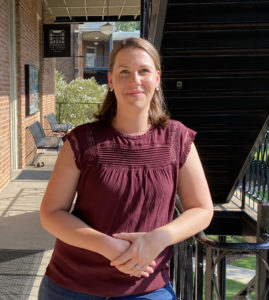
Jeri E. Wieringa is a digital historian and an assistant professor of religious studies at the University of Alabama. Her scholarship focuses on computational and data science methods as applied to the study of American religious history. Dr. Wieringa’s current research not only evaluates and develops computational methods for research in the humanities but also considers the whole ecosystem of digital projects, from data creation to archiving and preservation. She is currently developing a digital scholarly edition of early Seventh-day Adventist periodical literature and a monograph on print technologies in the development of the SDA.
Responding to our interview with Chris Cantwell and Kristian Petersen, Jeri E. Wieringa builds on the conversations of research evaluation and sustainability issues in digital humanities projects and unpacks what is at stake in how we define DH work and projects.
What does it mean to teach or research religious studies digitally? Does religious "data" make digital religious studies distinct within the digital humanities? What is a digital religious studies research project you think more people should know about? How can departments and the field better support digital methods and pedagogies? Six scholars gathered at the AAR's groundbreaking THATCamp to discuss these questions and more!
This work is licensed under a Creative Commons Attribution- NonCommercial- NoDerivs 3.0 Unported License.
The views expressed in podcasts, features and responses are the views of the individual contributors, and do not necessarily reflect the views of The Religious Studies Project or our sponsors. The Religious Studies Project is produced by the Religious Studies Project Association (SCIO), a Scottish Charitable Incorporated Organisation (charity number SC047750).